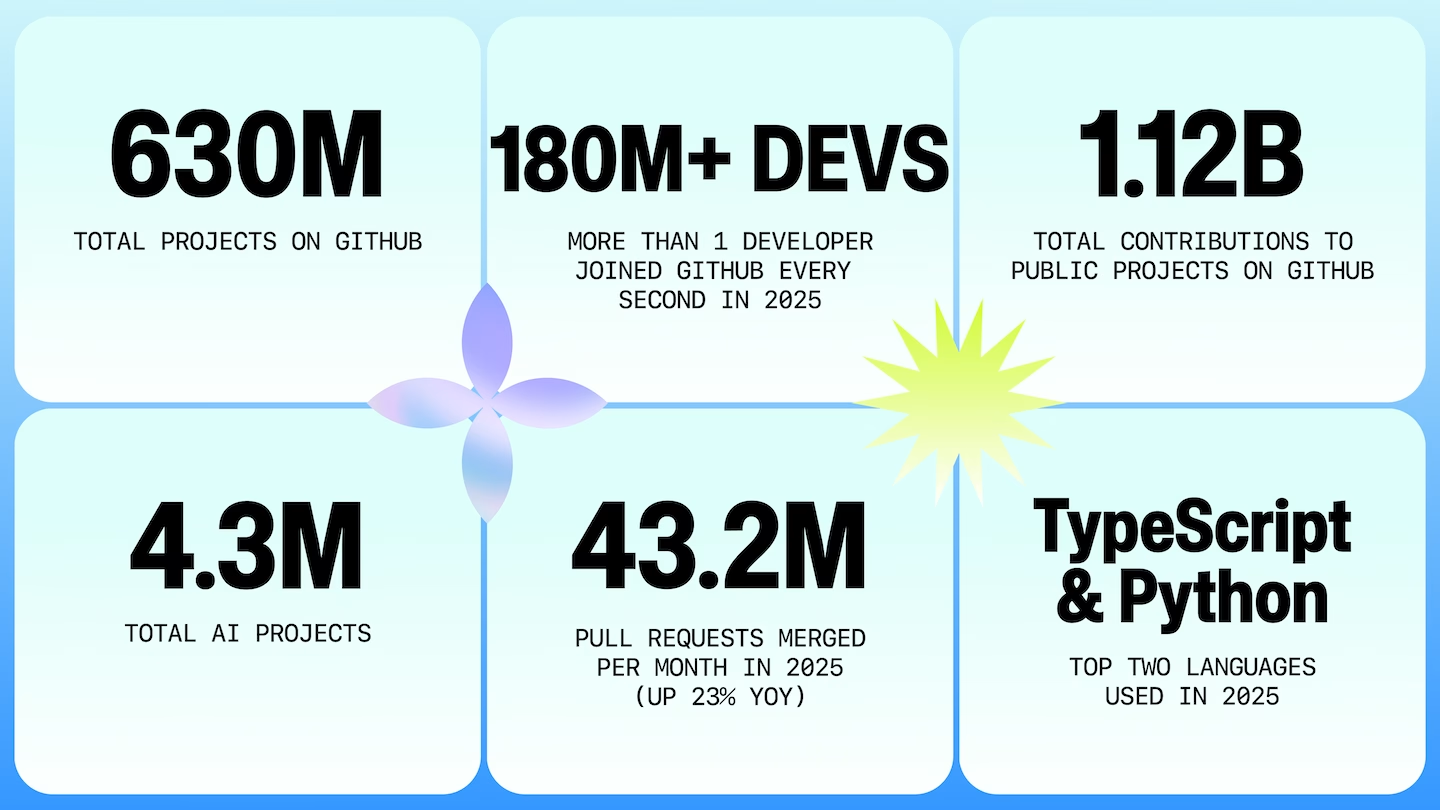GitHub Octoverse 2025: Developer Growth Surges as AI Propels TypeScript to Top Spot
San Francisco, CA – The global developer community is experiencing an unprecedented boom, with GitHub's latest Octoverse 2025 report revealing that a new developer joins the platform every single second. This explosive growth, pushing GitHub past 120 million developers worldwide, is largely attributed to the pervasive influence of artificial intelligence, which has also reshaped the landscape of programming languages, leading TypeScript to claim the #1 position for the first time. It's a significant shift.
The annual Octoverse report, released this week, highlights an environment where AI tools are not just augmenting, but actively transforming, how software is built. Contributions related to AI have seen a staggering 45% year-over-year increase, with more than 55% growth in AI-centric repositories. This indicates a profound integration of machine learning and AI into the daily workflows of developers. GitHub Copilot, a prime example of this integration, has now been adopted by 2.5 million developers, demonstrating how AI-assisted coding is rapidly becoming a standard practice across the industry. This isn't just about speed; it's about shifting paradigms.
TypeScript's Ascent and AI's Influence on Language Popularity
Perhaps the most striking revelation from the Octoverse 2025 data is TypeScript's ascendancy to the most popular language on GitHub, surpassing JavaScript. With 28% market share for TypeScript compared to 25% for JavaScript, it signals a clear preference for typed languages, particularly in large-scale and enterprise projects. Python holds strong at #2 with 22%, bolstered by a 15% year-over-year growth largely driven by its prominence in AI and machine learning. Java trails at #3 with 18%.
Experts suggest that AI tools like GitHub Copilot played a pivotal role in TypeScript's rise. Copilot reportedly offers superior autocompletion accuracy for typed languages, making complex projects more manageable and less error-prone. This synergy between AI assistance and language features has accelerated the adoption of TypeScript, particularly as 60% of new projects now incorporate machine learning libraries. Who would've thought we'd see such a rapid change in language preference?
Industry Perspectives and Emerging Concerns
GitHub CEO Thomas Dohmke emphasized AI's transformative power, stating, "AI is not just a tool—it's transforming how developers build. With a new developer joining every second, we're seeing unprecedented growth, led by AI's role in elevating languages like TypeScript to the top." Microsoft, GitHub's parent company, echoed this sentiment, noting how Copilot drives 30% faster code completion.
While excitement pervades the developer community, particularly around increased productivity, some voices express caution. Discussions on platforms like Reddit and Hacker News reveal concerns about potential over-reliance on AI, with questions arising about the quality of AI-generated code and the risk of "skill erosion" among developers. Kelsey Hightower, a prominent Google Cloud advocate, noted that "AI is democratizing dev, but we need better training to avoid skill erosion." Additionally, analysts from Forrester highlighted the necessity for enterprises to monitor security risks associated with the rapid expansion of AI-driven development. It's a balancing act, for sure.
The Octoverse 2025 report underscores a new era in software development, characterized by rapid growth, AI integration, and evolving language preferences. Regional data further illustrates this, with Asia-Pacific showing the highest growth rate (50% increase), led by India, and Europe showing strong enterprise adoption of TypeScript, partially due to a regulatory environment favoring secure, typed code. As the developer world continues to embrace AI, the industry faces the dual challenge of harnessing its power while addressing its ethical implications and ensuring robust, secure development practices.
